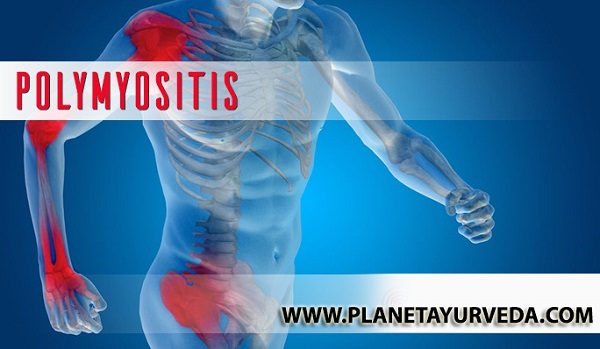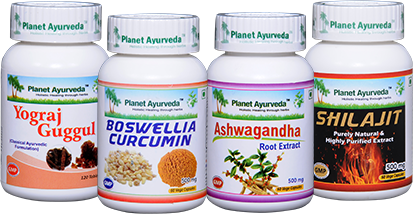Herbal Remedies for Thoracic Outlet Syndrome Treatment
Abstract
The thoracic outlet is a ring located just below the collarbone meaning this region is located in the lower part of the neck, formed by the top ribs and just below the clavicle. It extends to the upper part of the arm. This thoracic outlet is surrounded or formed by the muscles, nerves, vessels and bones. These nerves and vessels are supplying the shoulder as well as arm. When there is any injury or any anatomical defect to this thoracic outlet then the person will suffer from thoracic outlet syndrome. So in this article we will discuss thoracic outlet syndrome and its ayurvedic management.
Introduction
Thoracic outlet syndrome occurs when nerves and vessels in thoracic outlet are compressed by the ribs or neck muscles. When there is compression of nerves, arteries or veins in the pathway from lower neck to the armpit then it leads to a syndrome called thoracic outlet syndrome. Syndrome means group of disorders. This syndrome causes severe pain in the shoulder along with numbness in the hands. This is named after its position (the space between lower neck and upper chest).

Etiology/Causes
In general the cause of this syndrome is compression of nerves and vessels. Some of the reasons of compression of these nerves and vessels are
1. Anatomical Defects
These defects are present at birth which is also known as congenital defects such as extra rib or abnormally tight fibrous band that connects spine to the rib.
2. Trauma
Any trauma to that region may cause this syndrome. Trauma such as accident or fall from height can cause damage to the internal parts which further compress the nerves and vessels in the thoracic outlet.
3. Repetitive activity
Doing the same thing over and over again, will tear the internal parts around the thoracic outlet such as typing on a computer, lifting things above your head, swimmers, baseball pitchers.
4. Pressure on joints
Obesity is the reason for an undue amount of stress on joints. Someone who is carrying an oversized bag or backpack will show thoracic outlet syndrome symptoms.
5. Weightlifting
The one who is a gym goer may develop thoracic outlet syndrome.
Clinical features/Signs and symptoms
The symptoms of this syndrome vary according to the type of the thoracic outlet syndrome:
1. Neurogenic type of thoracic outlet syndrome
This type of syndrome is related to the abnormalities of bony and soft tissue in the lower neck region. This is the most common type of thoracic outlet syndrome. In this there is a compression of complex nerves (Brachial plexus). Symptoms include numbness of the hands, wasting of hand muscles, tingling and pricking sensation in hands.
2. Venous type of thoracic outlet syndrome
This condition arises due to damage to major veins in the lower neck and upper chest. The symptoms develop suddenly after unusual exercise of the arms. Symptoms include pain, swelling, bluish discoloration of the arm, weakness and heaviness of the neck and arms, dilated veins in the chest wall.
3 . Arterial type of thoracic outlet syndrome
This is a rare type of thoracic outlet syndrome, but this is a serious type of TOS. It is caused by congenital abnormalities in the lower neck and upper chest. Symptoms include cold sensitivity in hands and fingers, numbness, pain and poor blood circulation to the arms and hands.
Risk factors
These people are at high risk developing thoracic outlet syndrome:
- Females are more likely diagnosed with this syndrome than males
- This is more common in young adults
Diagnosis
Doctor will review the overall symptoms and medical history of the patient along with a physical examination. Some of the imaging diagnostic tests for the diagnosis of this syndrome are:
- X-ray: Doctor may order an X-ray which may reveal an extra rib.
- Ultrasound: This scan is used to rule out the vascular type of thoracic outlet syndrome.
- CT scan: This scan is helpful in identifying the location and cause of vessel compression.
- MRI (magnetic resonance imaging): This may reveal congenital anomalies.
- Angiography: This test may help to make blood vessels more visible
- Nerve conduction study: This test used a low amount of electrical current to measure nerve’s ability.
Treatment of Thoracic outlet syndrome
Generally a conservative approach is effective against this syndrome. Treatment may include:
- Physical therapy: Physical therapy is the first line of treatment in neurogenic thoracic outlet syndrome. Doctor will suggest some exercises that strengthen your shoulder muscles.
- Medications: Doctor will prescribe you anti-inflammatory drugs and muscle relaxant pain killers.
- These medications have their own side effects. They show bad results on prolonged usage. Now I am going to discuss Ayurvedic management for this syndrome.
Herbal Remedies for the Treatment Thoracic Outlet Syndrome
Planet Ayurveda provides various herbal products. This is a manufacturing company which manufactures various herbal products with the standardized extracts of potential herbs. This is an internationally certified company. The products are 100% pure and vegetarian and also made under the guidance of expert Ayurvedic physicians. This company offers following herbal products for this syndrome
- Yograj Guggul
- Boswellia Curcumin
- Aamvatantak Churna
- Vrihat Vatchintamani Ras
- Bone Support Capsules

Products Description
1. Yograj Guggul
This is a classical Ayurvedic formulation. It is used in various musculoskeletal disorders. It pacifies vata dosha and helps in alleviating the symptoms of this syndrome such as pain. It is prepared from potential herbs such as Chitrak (Plumbago zeylanica), Pippali (Piper longum), Vidang (Embelia ribes), Pushkarmoola (Inula racemosa) etc. It is traditionally used in ayurveda for painful joints and muscles. It rejuvenates the muscle strength and neuromuscular system.
Dosage: 1 tablet twice a day with plain water after meals
2. Boswellia Curcumin
It is a poly herbal formulation. It is used in various joint disorders. It is prepared from two effective anti-inflammatory herbs such as Shallaki (Boswellia serrata)and Haridra (Curcuma longa). It increases mobility and reduces joint pain. It is helpful in reducing pain and swelling in joints. This herbal product also has an analgesic effect.
Dosage: 1 capsule twice a day with plain water after meals
3. Aamvatantak Churna
It is the best herbal product for vataj disorders. It is a unique herbal combination for joint pains as it contains Ashwagandha (Withania somnifera), Haridra (Curcuma longa), Suranjan (Colchicum autumnale), Gorakhmundi (Sphaeranthus indicus) etc. This Churna reduces inflammation and swelling.
Dosage: ½ teaspoon twice a day with plain water after meals
4. Vrihat vatchintamani ras
This is the classical ayurvedic formulation. This formulation is used in the treatment of various neurological disorders. It has antioxidant properties and anti-aging properties. It improves the function of nerve cells which are responsible for this disease. It is made using Swarna bhasma, Rajat bhasam, Abhrak bhasma, Loha bhasma, Praval bhasma, Mukta bhasam etc.
Dosage: 1 tablet to be chewed with warm milk twice a day after meal
5. Bone Support
This is a poly herbal formulation used in various musculoskeletal diseases. It makes bones and muscles stronger and healthier. This herbal product is made from the standardized extracts of shuddha Laksha (Laccifer lacca), Hadjod (Cissus quadrangularis), Arjun (Terminalia arjuna) etc. It maintains the proper blood circulation in bones and muscles. It provides strength to the bones.
Dosage: 1 capsule twice a day with plain water after meals
Contact Planet Ayurveda to provide you the costing / ordering and delivery information at – costing.planetayurveda@gmail.com or call at +91-172-5214030 Or Check Website – www.PlanetAyurveda.com
Conclusion
We concluded that this disease is well treated by Ayurvedic herbs. Above provided information is right and if someone is suffering from this disease and wants Ayurvedic treatment then he/she can visit Planet Ayurveda Clinic. The herbal products of planet ayurveda are very effective and free from additives and chemicals and have no side effects.




